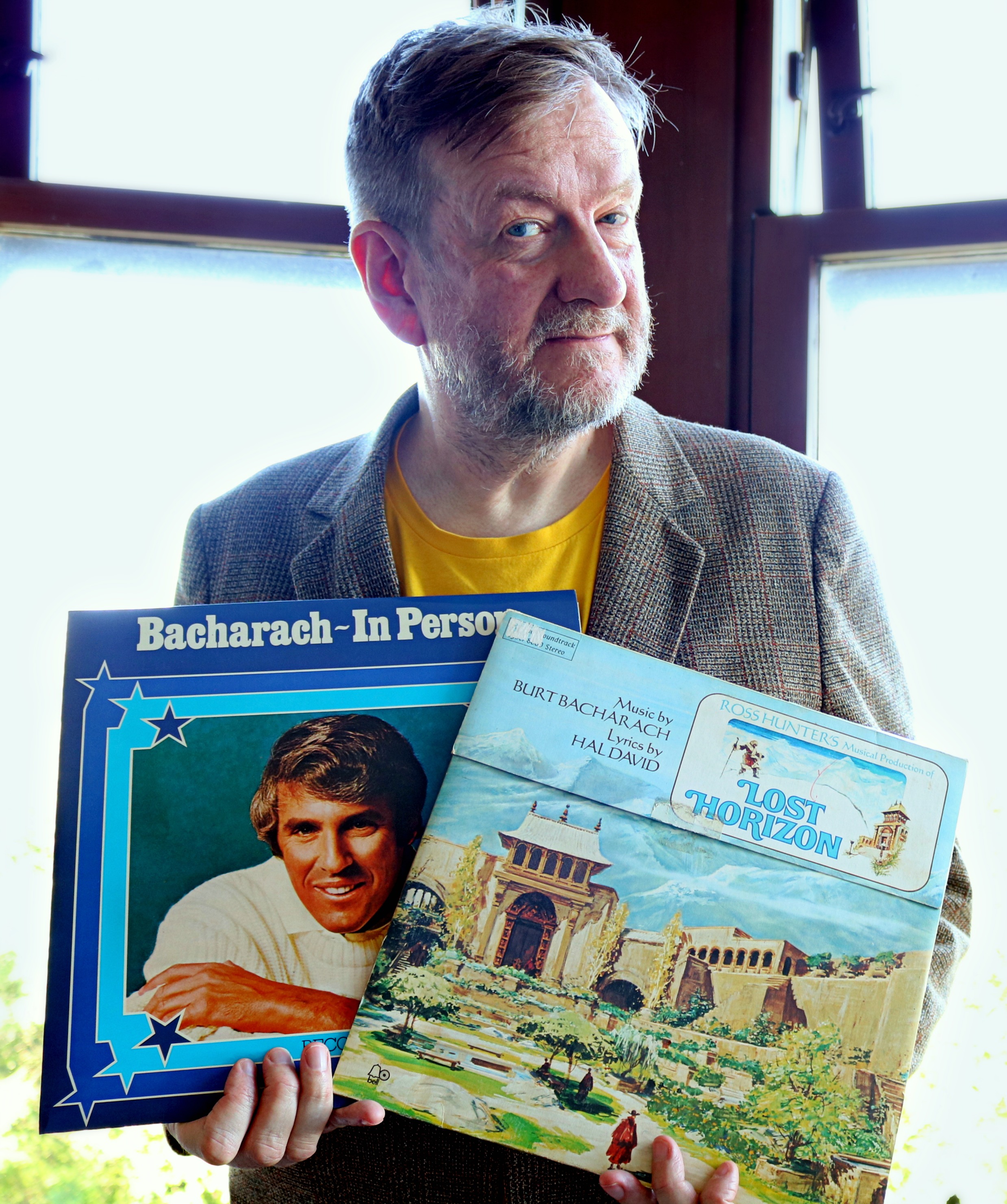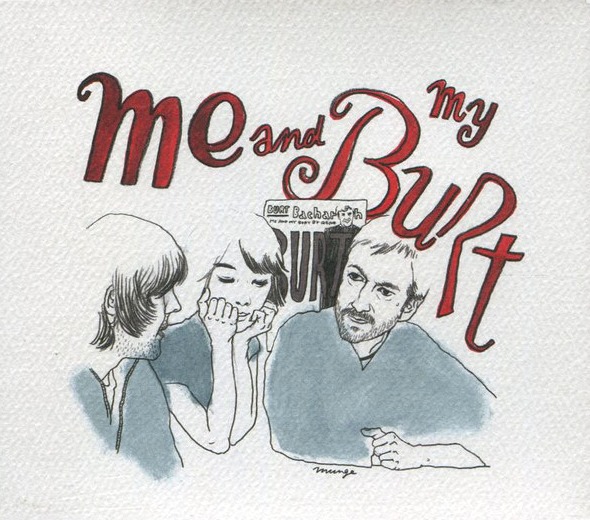Something Big: Burt Bacharach is Coming to Town by Duglas T Stewart
We’d like to thank Duglas T Stewart for stepping in to write his fascinating personal take on Burt Bacharach, who plays the Kelvingrove Bandstand this Friday.

Photograph by Chloe Philip
There has never been a label given to any artist that is less appropriate than the one so often associated with Burt Bacharach,“Easy Listening”. Burt Bacharach’s music is anything but easy. It has a level musical sophistication that is pretty much unique in pop music. Trying to work out the chords, as Burt wrote them, can be challenging and ultimately beyond many who have covered his tunes. This is a source of frustration to Bacharach. Despite the results not always being pleasing to Burt’s ears, there have been endless covers of his songs from artists including The Beatles (Baby, it’s You), Isaac Hayes (Walk on By), Aretha Franklin (I Say A Little Prayer) and Love (My Little Red Book). But it’s not all about sophistication with Burt Bacharach, it’s also about heart.
On Friday July 26th Burt will be playing in Glasgow at the first of this year’s Summer Nights at the Bandstand concerts. For me and many other believers this is much more than just another concert. This is something big, something really big.
Burt Bacharach is now 91 years old. The last time I saw him in concert was five years ago, he was 86 and it was the best I’ve ever seen him. It felt like it was more important to him than ever, to let people hear his music in a live setting and let them hear it properly. In recent years there’s been fewer hit medleys in his sets. Instead, I would say more satisfyingly, there’s been more full versions of some of the key songs. Many of his finest and best-loved work feature lyrics by his late writing partner Hal David. Hal’s lyrics were perfect for bringing the very best out of Bacharach’s music. They are wise, warm, full of love, hope and humanity.
Burt and Hal didn’t have a set way of writing, sometimes the music would come first and sometimes the lyric. Then Burt would have to react to Hal’s words. One of the greatest examples of this is the song Alfie, written for the 1966 film starring Michael Caine. Alfie asks in the film “What’s it all about”. Hal took this as his starting point, trying to answer that question, which not only Alfie but so many of us find ourselves contemplating so often. It is a good movie but I think Bacharach and David managed to say way more about “what it’s all about” in 2 minutes and 45 seconds than the movie does in just under two hours. However it’s not all about the words. In this song and as in many of their songs the music says so much more than the words could possibly say by themselves. It captures the unsayable in the magical international language of music. Alfie, a song commissioned for a project they were initially reluctant to be involved in, has been cited by both Bacharach and David as their personal favourite of all of their songs. Witnessing Bacharach singing those beautiful words “Something even non-believers can believe in” with his fragile voice, is one of the greatest moments of my musical life.
I first became aware of Bacharach’s music through some of his earlier hits, The New Christy Minstrels’ novelty hit recording of Three Wheels on My Wagon and Perry Como’s version of Burt and Hal’s first song together Magic Moments. I enjoyed both these records but neither prepared me for the wonders that were in store. The first times I actually noticed and paid attention to the name Burt Bacharach was while watching two Peter Sellers films as a pre-teen, the extremely underrated Neil Simon comedy After The Fox and the glorious cinematic mess (I mean that in a good way) Casino Royale. I loved what was happening on screen but the music took these films to a higher level. The scene in Casino Royale where Ursula Andress and Peter Sellers walk behind a giant fish tank accompanied by Dusty Springfield singing The Look of Love gave me a sneak preview of longings and desires way before I’d experienced these things for real. The combination of music and moving image was intoxicating. Later when I did start to experience these things for real I would often select Bacharach music as the soundtrack. Bacharach and David songs became friends and confidants through good and difficult times in my life.
When I started making my own music Burt helped show me the way. I remembered him saying he’d been advised to never be afraid of melody. He also said he never wrote his melodies at an instrument, so they wouldn’t be limited by the chords he was playing and therefore he could take the melodies anywhere. My musical ability was at the opposite end of the scale to Bacharach’s accomplished brilliance but he made me see that my lack of ability in mastering an instrument could be an advantage rather than a handicap. Of course I couldn’t do it alone and I’ve been lucky to have always had friends around to help me find the music that I imagined (and often better than what I could imagine).

In 2005 I got to co-produce with my brother-in-pop David Scott (The Pearlfishers) a Bacharach songbook album for the wonderful Korean singer and musician YeonGene. The album is called Me and My Burt and no other recording project I have been involved with in 34 years of making records has brought me such joy or satisfaction. Part of that joy was the cast of music makers that I was working with. YeonGene herself was like a wonderful warming light shining on us but there was also the quality of the material we were working with. Getting to work on these songs, finding new ways of approaching them that would remain true to the heart of the songs was a glorious experience. Also, David and I learned plenty that we could apply to our own music making adventures in the future.
I asked David what he felt Burt’s music has that separates it from the rest. David said “It’s the creativity of his melody writing and how he sets those melodies rhythmically. He’ll use these Latin or Brazilian rhythms but combine that with really inventive and avant-garde ideas. Phil Ramone (the legendary recording engineer and producer who worked on some of Burt’s greatest recordings) said that if you tried dancing to Burt’s music you could end up hurting yourself because the rhythms would often go to such unexpected and untypical places. Bacharach is the ultimate example of where really sophisticated schooled music meets street music.”
In the Me and My Burt project we tried not to just cover the best known songs but also explore some less well known material. Many of Bacharach’s obscurer works are just as brilliant and as worthy of attention as the hits. I found some of my favourites in soundtracks of movies and TV specials that are not highly regarded. The 1973 movie Lost Horizon was one of cinema’s legendary flops but it’s filled with great Bacharach and David songs, as is the 1967 made for TV musical On the Flip Side starring Rick Nelson. Go investigate if you haven’t already.
One final personal note is that I met my partner in life and music Chloe at a Burt Bacharach tribute night in Glasgow. I was performing the theme to the aforementioned After the Fox, originally performed by The Hollies with Peter Sellers and Burt. How could she resist. So that’s another way his music has played such an important part in my life.
Burt Bacharach is one of the true greats of popular music, a totally unique artist, who remains a major influence on many artists of every generation. Getting to see him perform for me is like getting to witness Picasso painting. This isn’t just another gig, it’s something big.
